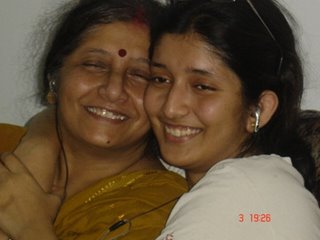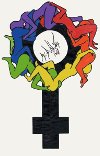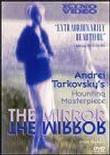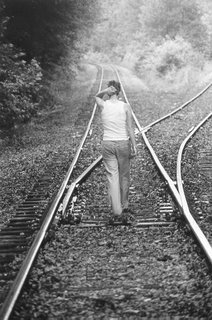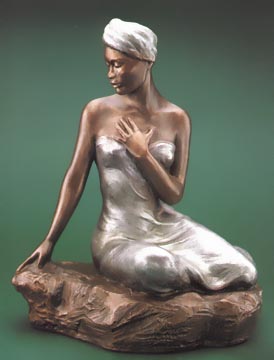
Europecentricism for centuries have alluded to this fact, that there is probably only one way of philosophy, The European way. Assumptions of European
superiority arose during the period of European
imperialism, which started slowly in the
16th century, accelerated in the
17th and
18th centuries and reached its zenith in the
19th century. The progressive character of European culture was contrasted with traditional hunting, farming and herding societies in many of the areas of the world being newly explored by Europeans, such as
the Americas, most of
Africa, and later the
Pacific and
Australasia. Even the complex civilizations of the
Islamic world,
India,
China and
Japan were considered to be underdeveloped relative to Europe, and were often characterised as
static. For many European writers of this time the history of Europe became paradigmatic for the rest of the world. It was thus thought to be uniquely responsible for the scientific, technological and cultural achievements that constitute the
modern world. Furthermore, scientific models for understanding the world were deemed to have replaced
religious or speculative accounts. The extent to which science itself can be considered to be specifically "European" is still debated.
The colonizing period involved the widespread settlement of parts of the Americas and Australasia with European people, and also the establishment of outposts and colonial administrations in parts of Asia and
Africa. As a result, the majority populations of the Americas, Australia and New Zealand typically trace their ancestry to Europe. For this reason a Europe-centered history may be taught in such countries, even though their populations are now far removed from Europe itself, but have nevertheless been brought up into what may be regarded as mainly European cultural traditions. Countries such as Australia defined their nationhood entirely in terms of an overseas extension of European history. It was, until recently, thought to have had no history or serious culture before colonization. The history of the native inhabitants was subsumed by the Western disciplines of
ethnology and
archaeology. In central and South America a merger of immigrant and native histories was constructed. The Orient or Far East is east of Europe, whereas the West is described west of Europe. Although many of these terms are not intentionally designed to relegate other groups to a subordinate role vis-?-vis the people of Europe, the effects of Eurocentrism create a self-sustaining belief, that Europe and Europeans are central and most important to all meaningful aspects of the world's social values, and cultural heritage. Other examples of Eurocentrism as part of education and the world of letters may be found in reference works such as encyclopedias.
In an overview of 17th century history, say, it would be Eurocentric to list numerous dates, events and political figures from the many states of Europe, but only brief mentions for the
Manchu conquest of
China or the
Mughals in
India, or the
Aksum Christian period in
Ethiopia. Then, as now (and for most of human history), well over half of the human population has lived in Asia.
Achebe, the doyen of modern African writing in English, is also an interpreter of men, society and literature and believes in art-literature that is in the service of man. He, like Wordsworth and Arnold, rooted in his own history and culture, has assumed the role of a teacher to re-educate and regenerate his society, to restore to Africa its pride, dignity and confidence lost during the colonial period. In this novel, A Man of the People, he makes Odili’s shallow intellectualism come out with the help of English. Achebe’s deliberate use of the Igbo proverbs and mannerisms lend African flavour to his writing. He has successfully formed a new diction and provides his characters with an impressive range of speech styles --- formal, appropriate to the highly educated, dislocated broken English to the less educated and the illiterate. Achebe has employed with great professional competence Pidgin English in his novels, a language spoken by non-native speakers of English. He has used pidgin for both verisimilitude and comic effect in this novel. “Mr. Nanga always spoke English or pidgin; his children…spoke impeccable English, but Mrs. Nanga stuck to our language—with the odd English words thrown in now and again”. When Odili visits the residence of the Nangas, the body-guard at the gate stops him and asks “make you park for out-side. I go haskam if he want see you. We tin be your name?” Nanga’s idiom which is pidgin reflects his sense of the degree of formality of the occasion. When he and Odili visit the house of Hon. Simon koko, minister for overseas training, Nanga tells koko “Ino follow you black whitemen for drink tea and coffee in the hot afternoon….whiskey and sodas for me and Mr. Samalu”
African women are making meaningful contributions: as lecturers, professors, and presidents of universities; as commissioners and ministers, senators and governors, and chairpersons of political parties; as directors and others involved in literacy movements and campaigns against forced marriages, clitoridectomies, and obsolete widowhood practices. But this novel deals with women in mostly a stereotypical way. Elsie, the slut. Edna, the convent educated school girl type. Mrs. Nanga the faithful bush wife.There are images of women playing traditional roles such as singers and dancers, or women adoring rich politicians like Chief the Honorable M.A. Nanga. Mrs. Eleanor John, a tough party woman and board member -- rich, independent, assertive -- lamentably is cast as a semiliterate businesswoman with no noteworthy role. We see Chief Nanga's wife, a beneficiary of the colonial, utilitarian education, dissatisfied with her husband's extramarital relationship and impending marriage to the young Edna. Mrs. Nanga complains to Odili, but when the latter sets out to unseat her husband, she reverts to her traditional role of helpmate fighting to retain her precarious social and economic position. Consequently, she remains a dependent, peripheral figure, deriving validity as a human being only from her husband.
A strong characterization in Man of the People is Eunice the lawyer. She is the fianc?e of Odili's schoolmate Max, and founder of the Common People's Convention that opposes corrupt Chief Nanga and his ilk. When Max is shot by thugs of a political adversary, Eunice takes decisive, retaliatory action: "[S]he opens her handbag as if to take out a handkerchief, [takes] out a pistol instead and [fires] two bullets into Chief Koko's chest”. To this strong portrait, Achebe adds pointedly: "Only then [does] she fall down on Max's body and begin to weep like a woman . . . A very strange girl, people said" . In a story of the total breakdown of law and order, where looting, arson and political killings have become rife, a single act of retaliation by an injured girl is considered "strange." Given the intensely patriarchal nature of traditional African cultures, African feminism cannot be considered radical. For white European and American women, feminism has predicated itself on ending gender discrimination and demanding equal job opportunities and voting and property rights. For African and African-American women, feminist ideology reflects specificities of race, class, and culture. It is for this reason that the former has failed to make any lasting appeal to Africa and its Diaspora. Because African women do not wish to alienate men, because African women do not wish to alienate the bulk of their tradition-based sisters, because many traditional African customs and mores are worth preserving, most African feminists espouse womanism, which Alice Walker defines as a philosophy that celebrates black roots, the ideals of black life, while giving a balanced presentation of black womanhood . . . . [I]ts aim is the dynamism of wholeness and self- healing.
Colonialism which is a fact of history is the moving force of the novels of Achebe that has revolutionized African life and tradition. The novel as other history novels, has a tragic ending, tend to re-interpret the African past and advocate an ‘anti racist-racism’. In his novel, the cultural conflict between the two divergent systems is depicted through a powerful and convincing dramatic relation ship between the principal characters.

